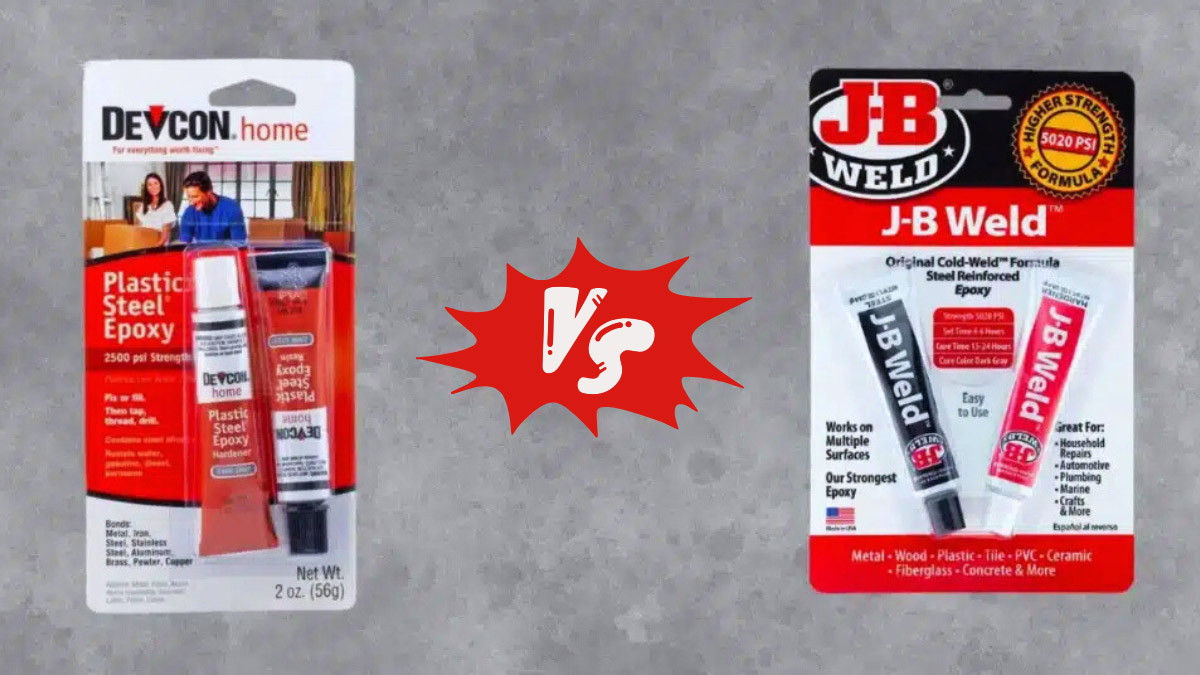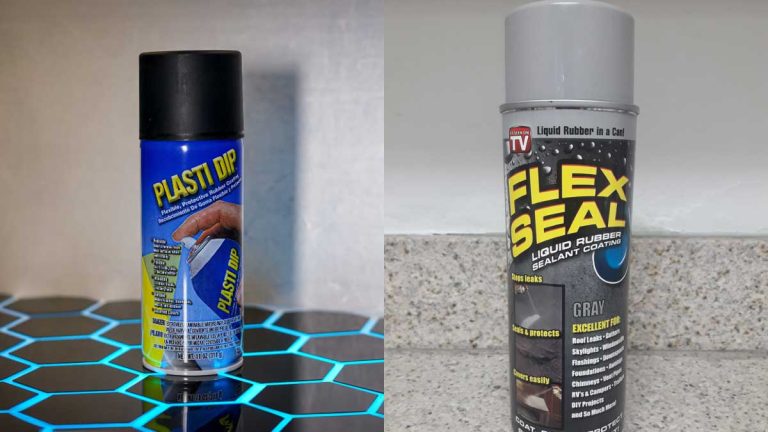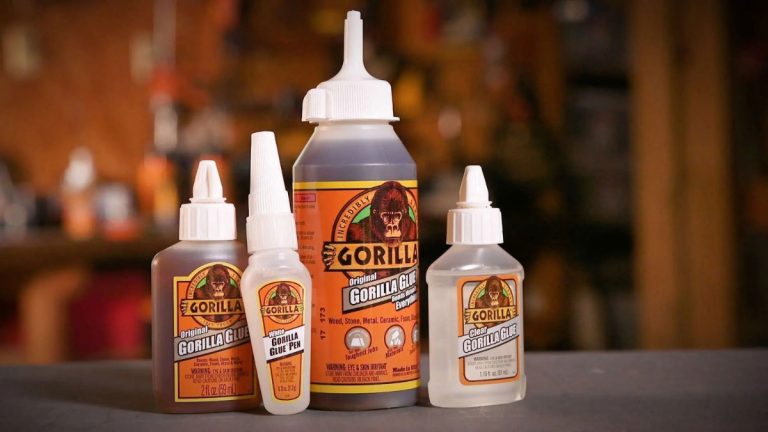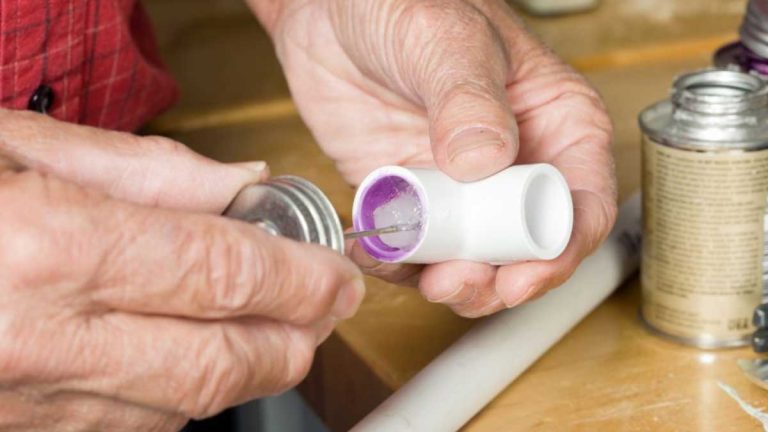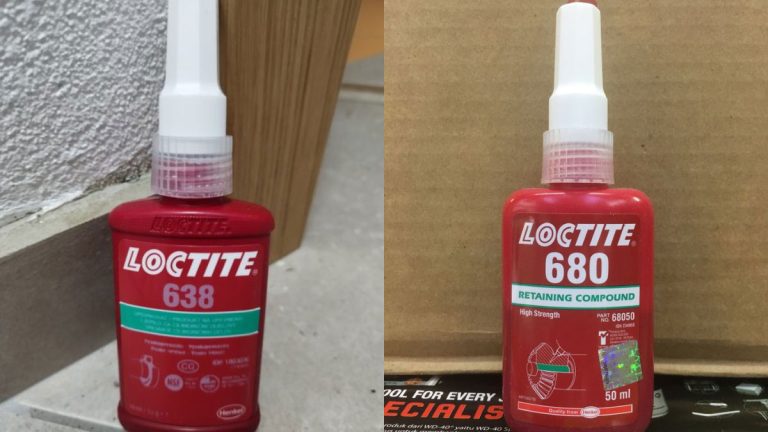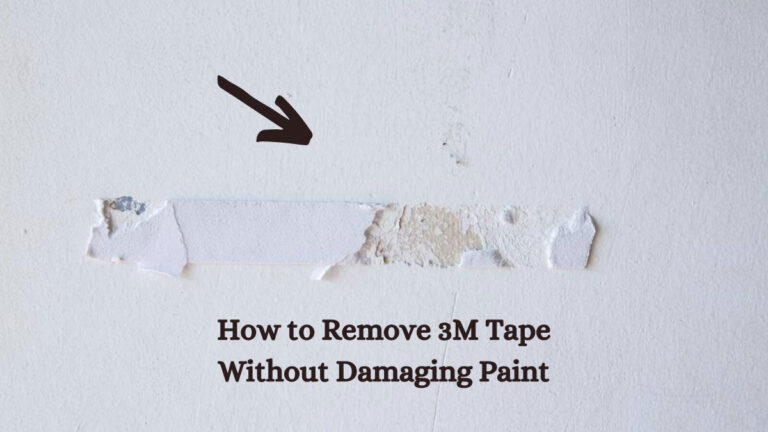Devcon vs JB Weld: Which Adhesive is Best for Your Repair Needs?
When you’re tackling a repair job, choosing the right adhesive can make all the difference. Two popular options, Devcon and JB Weld, often come up in discussions about heavy-duty bonding solutions. Both brands promise strong, durable repairs, but how do you know which one suits your project best?
Understanding the strengths and limitations of Devcon and JB Weld can save you time and frustration. Whether you’re fixing a broken metal part, sealing a leak, or crafting a DIY masterpiece, knowing the key differences will help you make an well-informed choice. Let’s jump into what sets these two adhesives apart and which one might be the perfect fit for your needs.
Key Takeaways
- Adhesive Types and Strengths: Devcon and JB Weld are both renowned for their strong, durable bonds, making them ideal for heavy-duty repairs. Devcon typically uses a methacrylate base and is known for high tensile strength and flexibility, while JB Weld features a combination of epichlorohydrin resin and polyamide hardener, boasting high tensile and flex strength.
- Temperature Resistance: Devcon can handle high temperatures, making it suitable for critical machine repairs, while JB Weld can resist temperatures up to 500°F, fitting it for high-heat applications like engine repairs.
- Working Time and Cure: JB Weld has a faster working and curing time—4-6 minutes of working time, sanding in 30 minutes, and full cure in 24 hours—compared to Devcon, which has varying but generally longer setting times (around 60 minutes to sandable time and full cure within 24 hours).
- Primary Applications: Devcon is excellent for metal repairs, high-stress environments, and precision tasks needing post-cure machining. JB Weld is versatile, suitable for metal, automotive, household, industrial, and marine repairs due to its durability and ease of use.
- Cost and Value: Both products are competitively priced, but Devcon often justifies a potentially higher cost with its performance, especially in critical repairs. JB Weld is widely available and considered a go-to for general repairs, providing strong value per volume.
- User Feedback: Professionals and users praise Devcon for high-stress applications but mention its limited working time. JB Weld is favored for ease of application and versatility, though some users report inconsistent results in certain scenarios.
Overview Of Devcon
Devcon offers high-performance epoxy products designed to provide strong bonds and repairs across various materials, especially metals.
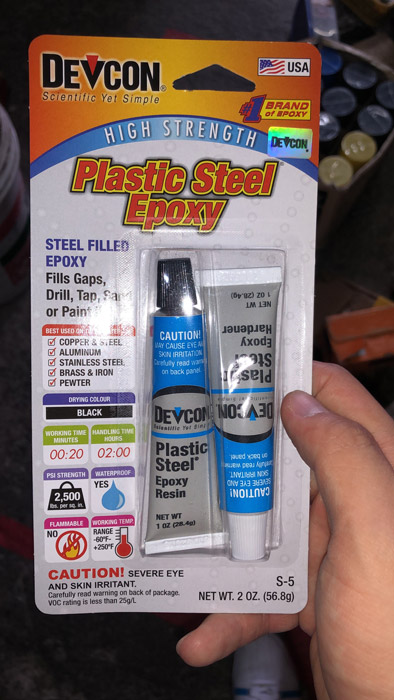
Key Features
Chemistry And Strength
- Chemistry: Devcon products typically feature a methacrylate base, providing excellent adhesion to metals.
- Strength: They offer high tensile strength and flex strength, which vary by specific product.
Fillers And Reinforcements
- Fillers: Devcon products often include fillers like titanium or other metals. These fillers enhance durability and wear resistance.
Heat Resistance
- Temperature Tolerance: Some Devcon products can withstand high temperatures. They’re ideal for critical repairs in machinery and precision parts.
Machinability
- Post-cure Machining: Some Devcon epoxies can be machined, including processes like tapping, once fully cured.
- Metal Repairs: Ideal for fixing machinery, automotive parts, and industrial equipment.
- Wear Resistance Applications: Suitable for surfaces exposed to friction and wear.
- High-temperature Situations: Used in scenarios where thermal resistance is crucial, such as engine components and heat exchangers.
- Precision Parts: Effective for tasks requiring accurate fitting and machining post-repair, ensuring functionality and performance.
Overview Of JB Weld
As you explore adhesives, JB Weld stands out as a reliable choice for bonding and repairing metal surfaces. Known for its strong bond and versatility, JB Weld meets various repair needs.
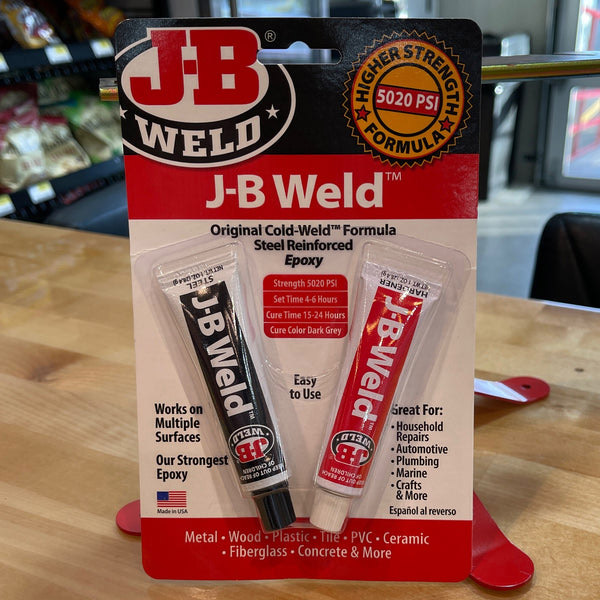
Key Features
Discover the key aspects that make JB Weld an effective solution for your projects:
- Chemical Composition:
- Resin: Epichlorohydrin combined with bisphenol A and bisphenol F, polymers from formaldehyde and dimethylbenzene.
- Hardener: Polyamide, aliphatic polyamines, dipropylene glycol, and benzyl alcohol.
- Properties:
- Tensile Strength: 3960 psi, providing a strong bond.
- Adhesion: 1800 psi, ensuring durability in various conditions.
- Flex Strength: 7320 psi, allowing flexibility without breaking.
- Tensile Lap Shear: 1040 psi, suitable for overlapping surfaces.
- Shrinkage: 0.00%, ensuring the material remains stable.
- Temperature Resistance: Effective up to 500°F, perfect for high-temperature applications.
- Working Time And Curing:
- Working Time: Approximately 4-6 minutes, giving enough time to position and set.
- Sandable: Becomes sandable in about 30 minutes, allowing for quick adjustments.
- Full Cure: Achieved within 24 hours, providing maximum strength and durability.
Common Applications
JB Weld’s versatility makes it ideal for various applications, ensuring you can tackle diverse repair tasks efficiently:
- Metal Repairs: Suitable for steel, aluminum, and other metals, ensuring strong and reliable bonds.
- Automotive Repairs: Ideal for engine blocks, radiators, and other high-temperature components.
- Household Repairs: Perfect for fixing metal furniture, appliances, and tools.
- Industrial Applications: Effective in heavy machinery, providing long-lasting repairs under strenuous conditions.
- Marine Repairs: Withstands water and salt, making it suitable for boat maintenance.
| Key Feature | JB Weld Metrics |
|---|---|
| Tensile Strength | 3960 psi |
| Adhesion | 1800 psi |
| Flex Strength | 7320 psi |
| Tensile Lap Shear | 1040 psi |
| Shrinkage | 0.00% |
| Temperature Resistance | Up to 500°F |
| Working Time | 4-6 minutes |
| Sandable Time | 30 minutes |
| Full Cure Time | 24 hours |
By understanding JB Weld’s features and applications, you can confidently select this epoxy for your bonding and repair needs. Its strong bond, versatility, and easy use make it a valuable tool in both professional and DIY settings.
Performance Comparison
When it comes to adhesives, understanding the nuances between top choices like Devcon and JB Weld helps in deciding the best fit for your needs.
Bond Strength
JB Weld
- Bond Strength: Known for exceptional bond strength, the original JB Weld formulation excels in various tests. For instance, in shear strength tests where weights were hung from bolts embedded in epoxy, JB Weld outperformed not only other brands but also several of its own newer versions.
- Usage Example: Ideal for applications demanding substantial load-bearing capacity, such as automotive and heavy machinery repairs.
Devcon
- Bond Strength: Devcon epoxies, particularly the Devcon Plastic Steel variant, provide strong bond strength. In comparative tests, although it marginally lagged behind JB Weld, it still showcased impressive performance.
- Usage Example: Suitable for demanding repairs requiring robust adhesion, like industrial equipment and metal parts bonding.
Durability
JB Weld
- Durability: JB Weld is celebrated for its durability. It withstands significant stress and adverse environmental conditions. Its original formulation remains particularly resilient under various circumstances, making it a long-term favorite among users.
- Temperature Resistance: Can endure temperatures up to 500°F, enhancing its suitability for high-heat applications.
Devcon
- Durability: Devcon epoxies are also robust, offering high resistance to wear and tear. Some formulations include metallic fillers such as titanium, enhancing their durability, particularly in high-stress environments.
- Machinability: Post-cure, some Devcon epoxies can be machined, providing versatility in precision-required tasks.
Setting Time
| Product | Working Time | Sandable Time | Full Cure Time |
|---|---|---|---|
| JB Weld | 4-6 minutes | 30 minutes | 24 hours |
| Devcon Plastic Steel | Not specified | 60 minutes | 16-24 hours |
JB Weld
- Working Time: Sets within 4-6 minutes, allowing for quick application adjustments.
- Sandable Time: After 30 minutes, you can start sanding, which enables faster project progression.
- Full Cure Time: Reaches full cure in 24 hours, providing a robust bond ready for use.
- Setting Time: While specific Devcon formulations vary, typically, Devcon Plastic Steel takes approximately 60 minutes to be ready for further processing.
- Full Cure Time: Achieves full strength in 16-24 hours, ensuring a dependable bond.
By understanding these aspects, you can better select an adhesive that meets your specific project requirements.
User Experience And Reviews
Explore how both Devcon and JB Weld perform based on user experience and feedback.
Professional Opinions
Devcon: Professional machinists and engineers often recommend Devcon for critical repairs. It’s highly effective for machinery and precision parts, offering robust durability and strength. Devcon’s titanium-reinforced epoxy is renowned for achieving a machined finish, crucial in high-tech fields. Nonetheless, its high cost and short working time are noted downsides by experts.
JB Weld: Professionals appreciate JB Weld for its versatility in bonding metals. It has notable applications in rifle bedding and aluminum engine part repairs. Even though its broad usage, experts highlight occasional inconsistencies in results, especially about failures in specific applications even after proper mixing and drying.
Customer Feedback
Devcon: Users laud Devcon for its exceptional performance in high-stress environments. The epoxy is often praised for maintaining strength under thermal stress and mechanical loads. Customers, but, frequently point out the product’s limited working time as a drawback, which can complicate repair processes.
JB Weld: Customer reviews commend JB Weld for its easy application and solid bonds across various materials. Many users share success stories involving automotive and household repairs. But, some have reported issues with adhesion in certain scenarios, suggesting a strict adherence to the preparation and application instructions is necessary for optimal results.
Performance and Applications
Devcon:
- Strength and Durability: Titanium-reinforced, ideal for machined finishes
- Applications: Critical machinery repairs, precision parts
- Drawbacks: Expensive, short working time
JB Weld:
- Versatility: Bonds metals, versatile usage
- Applications: Rifle bedding, engine part repairs
- Drawbacks: Inconsistent results in some applications
Chemical Composition
Devcon:
- Resin: Bisphenol A-epichlorohydrin
- Hardener: Aliphatic polyamine
Setting Times Comparison
| Feature | Devcon | JB Weld |
|---|---|---|
| Initial Setting Time | 60 minutes on average | 4-6 minutes |
| Full Cure Time | 16-24 hours | 24 hours |
| Sandable Time | Post full cure | 30 minutes |
Key Features
- Devcon:
- High tensile and flex strength
- Heat resistance
- Post-cure machinable
- JB Weld:
- Tensile strength: 3960 psi
- Flex strength: 7320 psi
- Temperature resistance: up to 500°F
Summary of User Insights
Devcon: Preferred for long-lasting, high-strength applications but costly and limited working window.
JB Weld: Favored for its ease of use and versatility, though some applications reveal inconsistent performance.
Make an well-informed choice by weighing your specific repair needs against the features and user feedback of both adhesives.
Cost Comparison
When comparing the costs of Devcon and JB Weld, it’s essential to consider both the immediate purchase price and the value provided by each product.
- JB Weld:
- Price: Typically around $6.99 for a small tube. While this appears affordable, it’s relatively costly per volume.
- Availability: Easily found in most hardware stores and is a popular choice for a wide range of repairs.
- Perceived Value: Often considered a standard adhesive, this makes JB Weld a go-to for many common fixes.
- Devcon:
- Price: Products like Devcon PC-7 are price-competitive with JB Weld. Though the exact cost may vary, users often find it on par with JB Weld.
- Additional Costs: Even though potentially higher initial pricing, some users justify the expense given Devcon’s strength and performance in certain tests.
- Perceived Value: High performance and durability often make Devcon a preferred option for more critical or industrial repairs.
Key Points
- Volume Cost: JB Weld’s lower price per tube might be misleading when calculated per volume, especially compared to larger or more concentrated options from Devcon.
- Performance Metrics: In tests, Devcon’s PC-7 has shown comparable or slightly superior results. This might tip the cost-benefit scale in Devcon’s favor for demanding tasks.
| Product | Typical Price | Availability | Notable Features |
|---|---|---|---|
| JB Weld | $6.99 | Widely available in stores | Known for high thermal resistance (up to 500°F), ideal for engine repairs, strong bond strength, and recognizable brand presence |
| Devcon PC-7 | Variable | Available in select stores | Competitive pricing, similar or slightly better performance in tests than JB Weld, particularly suitable for industrial needs |
- Evaluate the cost per volume to understand the true expense of each adhesive.
- Consider Devcon for more critical, durable bonds; JB Weld is suitable for general, accessible repairs.
- Both adhesives offer strong performance, so assess the specific needs of your repair project when choosing between them.
Conclusion
Choosing between Devcon and JB Weld depends on your specific repair needs and project requirements. Devcon excels in high-performance, heat-resistant applications, making it ideal for industrial and precision repairs. Its robust durability and ability to be machined post-cure provide a significant advantage for critical fixes.
On the other hand, JB Weld offers exceptional bond strength and versatility, particularly for metal surfaces and general repairs. Its quick setting time and ease of use make it a convenient choice for various tasks, from household fixes to automotive repairs.
Consider the cost per volume and the specific demands of your project to make an well-informed choice. Both adhesives have their unique strengths and limitations, so understanding these can help you select the best option for your needs.
Frequently Asked Questions
Is Devcon or JB Weld better?
Both Devcon and JB Weld offer strong and durable bonding solutions. Devcon is ideal for high-stress environments and critical machinery repairs due to its high performance and resistance to heat. JB Weld excels in versatility and ease of use, suited for various general repairs. Your choice depends on the specific requirements of your repair job.
Is Devcon an epoxy?
Yes, Devcon produces high-performance epoxy products designed for strong bonds across various materials, especially metals. Their range includes specialized formulations that offer excellent adhesion, high tensile and flex strength, and resistance to heat and wear.
Does JB Weld actually hold?
JB Weld forms an incredibly strong bond that easily exceeds the strength of the material it adheres to. It’s known for its reliable performance in both household and industrial applications, making it a favorite for many repair tasks.
What will JB Weld not stick to?
JB Weld generally does not adhere well to flexible rubber surfaces, canvas, or polypropylene plastic. For these materials, you may need to consider alternative adhesives specifically formulated for those surfaces.
Is anything stronger than JB Weld?
JB Weld is renowned for its heavy-duty strength, often referred to as “The World’s Strongest Bond.” However, depending on the application, there may be other specialized adhesives that offer tailored performance for specific materials or conditions.

